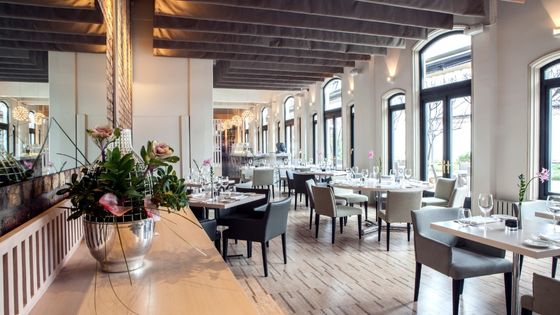The latest technology trend in hospitality management includes using artificial intelligence (AI) and machine learning (ML) to improve customer service and personalization, automating tasks such as booking and check-in, and data analytics to improve decision-making.
More: restaurant reservation system
There is also an increasing use of virtual and augmented reality in the hospitality industry to enhance the guest experience and use chatbots and voice assistants to provide 24/7 assistance to guests. Additionally, there is a trend towards contactless and mobile solutions, such as mobile check-in and keyless room entry, to reduce physical contact and improve safety during the COVID-19 pandemic.


Another trend in the hospitality industry is social media and online reputation management to engage with guests and monitor guest satisfaction. This includes using platforms like TripAdvisor, Yelp, and Facebook to respond to customer reviews and data analysis to identify patterns and trends in customer feedback. Additionally, many hotels and resorts use digital signage and digital kiosk survey to provide guests with information and interactive experiences, such as virtual property tours and mobile apps to enhance guest engagement and provide access to amenities and services.
There is also a growing emphasis on sustainability and eco-friendliness in the hospitality industry, with many hotels and resorts implementing energy-efficient lighting and appliances, recycling and composting programs, and using locally-sourced and organic food.
Another trend in the hospitality industry is using blockchain technology to improve security and transparency in transactions and data management. Blockchain technology can create secure digital identities for guests and be used to manage and track the movement of goods and services within the hotel or resort. Blockchain technology can also track and drive guest loyalty programs and rewards, enabling secure and transparent financial transactions.
Cloud-based technologies are also becoming increasingly popular in the hospitality industry. They allow for more flexible and cost-effective data management and enable hotels and resorts to access and analyze data in real-time.
Internet of Things (IoT) technology is being integrated into the hospitality industry to improve the guest experience and hotel operations. It includes the use of intelligent devices, such as thermostats, lighting, and security cameras, to create a more personalized and responsive environment for guests, as well as the use of sensors to track and monitor the movement of guests and staff throughout the hotel.
Predictive analytics to improve decision-making and forecasting is another trend in the hotel business. Predictive analytics employs data mining, machine learning, and statistical techniques to identify patterns and future events, which can predict occupancy rates, forecast demand for rooms and other services, and identify guest preferences and behavior trends. This information can be used to optimize pricing, inventory management, staffing, and other operational decisions.
Another trend is using Virtual Reality (VR) and Augmented Reality (AR) technology to enhance the guest experience by providing an immersive, interactive experience, whether virtual tours of the hotel and its surroundings or interactive games and activities.
Additionally, voice assistants such as Amazon Alexa and Google Home are becoming increasingly popular in hotels, allowing guests to control room temperature, lighting, and other settings and providing information on hotel services and local attractions.
Contactless technology, such as mobile check-in and keyless room entry, is becoming increasingly popular to reduce physical contact, improve safety, and enhance the overall guest experience.
Use of chatbots and virtual assistants as a way to improve customer service and increase guest engagement. These technologies use natural language processing (NLP) and machine learning (ML) to understand and respond to guest inquiries and requests in real time. They can be integrated with messaging apps, social media platforms, and hotel websites. It allows guests to access information and services 24/7 and provides hotels with valuable data on guest preferences and behavior.
Another trend is digital twin technology, which allows hotels and resorts to create virtual replicas of their properties, which can be used for planning, design, and simulation. This technology can be used for various purposes, such as energy management, asset management, and guest experience analysis.
Conclusion
The use of analytics and big data is becoming more prevalent in the hospitality industry to gain insights into guest behavior, improve marketing and sales efforts, and optimize operational decision-making.
The latest technology trends in the hospitality industry include using chatbots, virtual assistants, digital twin technology, intelligent building technology, and big data analytics to improve customer service, enhance the guest experience, and optimize operations.
















